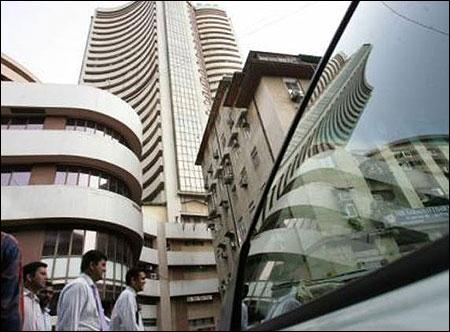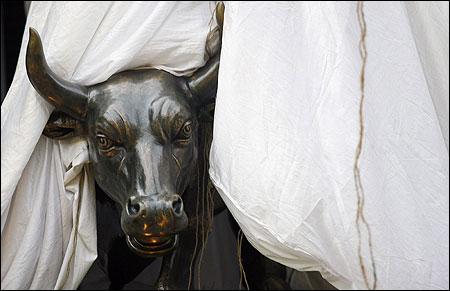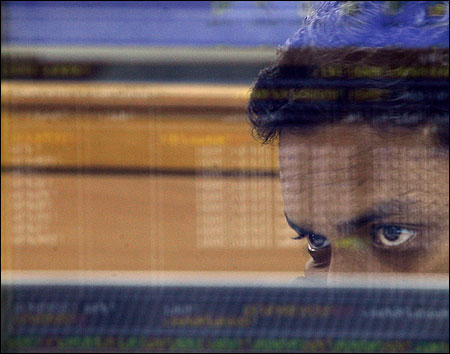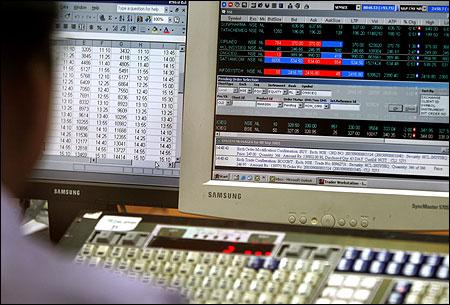Photographs: Reuters
The BSE Sensex index could surge by as much as 16 per cent next year, but the rise will be marked by "volatility", investment banking major Morgan Stanley has said in a report.
"The probability-weighted outcome for the BSE Sensex is 18,741 for December, 2012, 16 per cent above the current level," Morgan Stanley said.
The BSE benchmark Sensex has lost over 19 per cent so far this year and closed at 16,542.62 points on December 1.
The Sensex is down by nearly 22 per cent from an all-time high of 21,206.77 points scaled on January 10, 2008.
Click on NEXT for more...
Sensex may surge by 16% in 2012: Morgan Stanley
Photographs: Reuters
On the domestic front, factors like comforting inflation data and the government's recent bold policy announcements are likely to act as a boost for the market.
However, economic turmoil in the developed world is likely to act as a dampener.
"Inflation data is already moderating, setting the stage for monetary easing. The bad news on policy has stopped, although the volatility emanating from a weak developed world could keep pegging back Indian equities," Morgan Stanley said.
Click on NEXT for more...
Sensex may surge by 16% in 2012: Morgan Stanley
Photographs: Reuters
As per the latest data, food inflation stood at a four-month low of 8 per cent for the week ended November 19.
Food inflation was in double digits for five consecutive weeks in October and early November.
"The positive side effect of any decline in inflation expectations will be a relative transfer of savings from gold to equities," the report said.
Given the decline in seasonally adjusted inflation, "The RBI is set to change policy direction via the liquidity injection, CRR cuts and rate cuts path over the coming months," it added.
However, excessive monetary easing in Europe or the US to address anemic growth could trigger a rise in commodity prices, resulting in inflation across India all over again.
Click on NEXT for more...
Sensex may surge by 16% in 2012: Morgan Stanley
Photographs: Reuters
In addition, unrest in the Middle East has the potential to create pain via higher oil prices.
A substantial depreciation in the rupee value poses the same risk to inflation, Morgan Stanley said.
On the policy front, recent action on FDI in pension funds and retail and power tariff revisions suggest that the bad news has stopped. However, multiple state elections in the coming months could imply continuing policy stalemates.
Click on NEXT for more...
Sensex may surge by 16% in 2012: Morgan Stanley
Photographs: Reuters
India is in a difficult position with respect to its fiscal deficit and the global crisis could cause the fiscal deficit to rise further, which in turn could pose a "problem" for the market, the report said.
Moreover, India's current account deficit and the way it is funded (largely by capital market flows) exposes India to a global financial crisis.
This was the very reason for which the Indian equity market significantly underperformed in 2008-09 even though Indian corporate earnings outperformed the rest of the world.
The report, however, cautioned that a "significant global stimulus or a breakdown in capital markets would hurt India a la 2008."






article